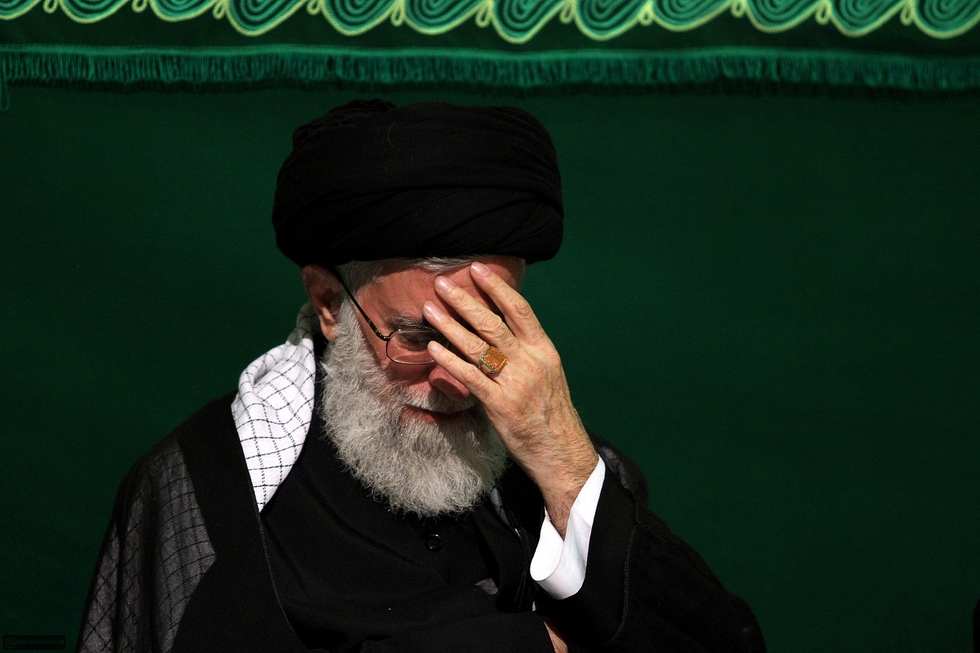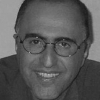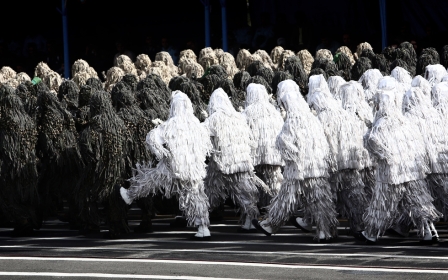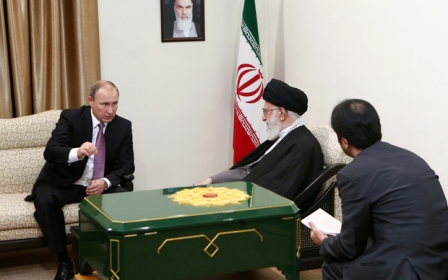Understanding Khamenei’s objection to increased use of the English language in Iran

During a speech to Iranian teachers on 2 May, Iran’s Supreme Leader Ayatollah Ali Khamenei, criticised the practice of “insisting on the promotion of English [language] alone” in Iran. He added: “The language of science is not English alone. … Other languages like Spanish, French, German and Eastern languages are the languages of science, too.” He reiterated that “other countries have plans for countering the spread of foreign languages … [but] unfortunately in our country there is no specific plan for dealing with this issue and we have left the doors open for the spread of foreign culture.” He also added that “these remarks do not mean terminating English language teaching at schools, but the main issue is to know our rival and how precisely the opposite party has made planning to influence the country’s future generation.”
This article seeks to answer two questions. First, how realistic is this viewpoint? Second, what are the ramifications that concern Khamenei regarding the continuous increase in the use of the English language?
The English language did not have the prestige that it has today until the first half of the 20th century. For instance, Isaac Newton, the British physicist and mathematician, wrote his book Principia Mathematica, which was published in the 18th century, in Latin. In the 19th century, English, French and German were the dominant languages in Europe. Albert Einstein’s early papers were all in German.
In the 20th century, however, the situation became much more favourable for the establishment of English as the main scientific language. Two world wars were followed by the formation of new international institutions for science that precluded the participation of the defeated Germanophone scientists. This exclusion would contribute to the demise of the German language as a leading scientific language.
World War II and the destruction of Europe paved the path for the emergence of the United States as a superpower. America, which was protected by its distance from the European theatre of World War II, survived the war almost undamaged. In addition, during and after the war, a large number of European scientists and scholars were either recruited by the Americans or sought immunity and immigrated to the US. For example, Operation Paperclip, conducted by the US intelligence services, was one of the programmes under which hundreds of German scientists, engineers and technicians were brought to the United States.
While Europe was busy with its reconstruction, science in the US was mobilised on a grand scale through the development of large government laboratories, funding research in universities, and by purchasing high-tech products from companies in industry. Massive research and development (R&D) laboratories emerged in their modern form. Numerous laboratories focused on everything from electronics to medical research to psychological testing.
With the beginning of the information age and the emergence of American giants such as Microsoft, IBM, Intel, Google and Apple, America became the factory for the production of new words and terminologies that would later enter into the everyday life of people around the world.
Additionally, experts maintain that there are several other factors behind English becoming the language of science. These factors include the use of the Latin alphabet, which is one of the most universal writing systems, simple verb conjugation, fewer irregular verbs, and the absence of number or gender inflection for adjectives, articles and adverbs.
Contrary to Ayatollah Khamenei’s remarks seeking to give the same weight to other languages being used as languages of science, a 2012 study by the scientific-research publication Research Trends examined articles collected by SCOPUS, the world’s largest database for peer-reviewed journals (more than 21,000 articles from dozens of countries), and found that 80 percent of the articles were written entirely in English.
More interestingly, according to the study, the number of journal articles published in English in countries where English is not the native language outnumbered the scientific articles written in the country’s official language. In France, for example, the ratio of English articles to French articles was around 8:1, in Spain 7:1, in Germany 9:1, and in Russia 27:1. So, the Ayatollah’s opinion that “other countries have plans for countering the spread of foreign languages” does not seem to be accurate. The reason is quite simple. If you are a Russian scientist and write in Russian, you will not receive any international attention or recognition.
Now the question becomes: why does Ayatollah Khamenei, despite his constant emphasis on scientific and technological advancement as a necessity for the continued independence of Iran, oppose the spread of the English language?
Joseph Nye, the 80-year-old American international-relations scholar who coined the term “soft power” argues that soft power is just as important as hard power (money and guns), and even more so in international politics. Soft power, according to Nye, is the ability to shape the preferences of others to your benefit through appeal and attraction. This is achievable through the cultural and ideological hegemony of a superior power to directly or indirectly impact another country’s behaviour so it desires what the superior power wants. Furthermore, the use of hard power, Nye contends, is more costly (both financially and politically), whereas soft power does not require substantial resources.
In his book Soft Power: The Means to Success in World Politics, Nye has described how the growing use of English as a medium of transnational communication has given the United States soft power. English opens the door to the youth of other nations and allows them to connect with Hollywood, pop culture and American media, which youth find both appealing and attractive. In this respect, based on Nye’s theory, the Ayatollah’s concern is understandable because the spread of the English language can potentially lead to the decay of the ideological pillars on which the Iranian Islamic system is based.
However, the flaw in Khamenei’s argument is that the English language is just one of the many elements constituting American soft power. Yes, English facilitates the connection of youth with American pop culture but you do not need to know English to be attracted to the songs of Lady Gaga and Justin Timberlake. With the telecommunication capabilities available to Iranian youth, it is next to impossible to stop them from experiencing and enjoying American culture.
According to official statistics from 2012 (which have certainly increased by now) 60 percent of the Iranian population, representing 45 million people, have access to the internet. Forty percent of the people accessing the internet were between 20 to 29 years of age. It is true that internet access is heavily restricted in Iran but there are a variety of methods young Iranians use to defeat internet filtering.
In conclusion, English is the language of science and the status of other languages is insignificant in this respect. The superiority of English as the language of science is accepted by most non-English speaking countries. And finally, although American soft power utilises English to project its cultural hegemony, preventing the spread of English is not a practical solution for impeding what Ayatollah Khamenei calls the American cultural invasion.
- Shahir Shahidsaless is an Iranian-Canadian political analyst and freelance journalist writing about Iranian domestic and foreign affairs, the Middle East, and the US foreign policy in the region. He is the co-author of Iran and the United States: An Insider’s View on the Failed Past and the Road to Peace. He is a contributor to several websites with focus on the Middle East as well as the Huffington Post. He also regularly writes for BBC Persian. He tweets @SShahisaless.
The views expressed in this article belong to the author and do not necessarily reflect the editorial policy of Middle East Eye.
Photo: Iranian supreme leader Ayatollah Ali Khamenei looks down during a religious ceremony on 5 May, 2011, in Tehran (AFP/HO/Iranian Supreme Leader's Website).
New MEE newsletter: Jerusalem Dispatch
Sign up to get the latest insights and analysis on Israel-Palestine, alongside Turkey Unpacked and other MEE newsletters
Middle East Eye delivers independent and unrivalled coverage and analysis of the Middle East, North Africa and beyond. To learn more about republishing this content and the associated fees, please fill out this form. More about MEE can be found here.





